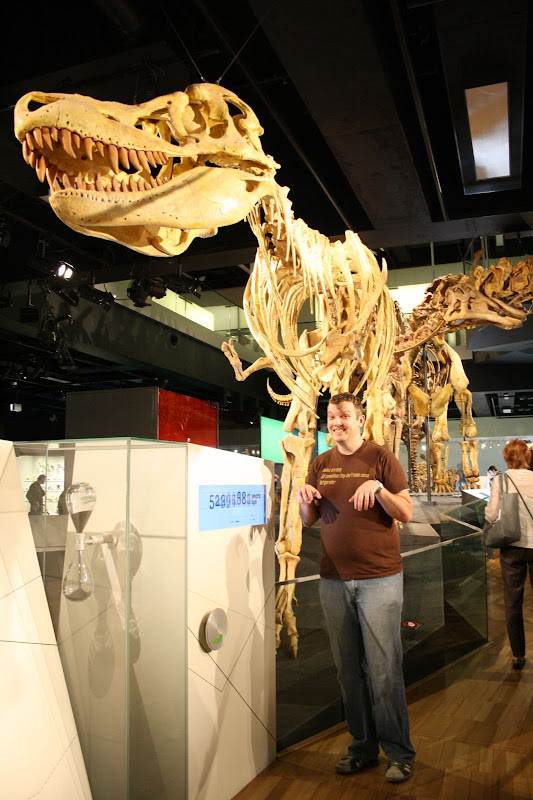I gave a talk last night that was semi-evangelistic/semi-practical advice type talk, with some tips for using Facebook as Christians. It was an interesting exercise for me to think through the professional stuff I’ve done with Facebook and how it applies to being a Christian individual (rather than a Christian organisation – I’ve posted a social media strategy for promoting Christian stuff over at Venn Theology).
I promised I’d post the tips online – I don’t know if anybody actually wants them, but I’m a man of my word…
The first point I made, speaking to a group of slightly younger than me tech-savvy types – is that digital natives, the people growing up alongside the Internet, increasingly get all their news, and the information that shapes everything they think about the world, via the Internet. Which has implications for us as Christians – because we need to get the gospel into their news feeds.
There’s all sorts of research out there about digital natives and media consumption, you can google it, or you can take my word for it…
To set the scene for these tips – I used Philippians 2 to show that becoming a follower of Jesus restores the way we relate to each other, because our inter-human relationships were damaged by the fall…
Using Facebook to Encourage one another
We can use Facebook to encourage each other. I’ve got five tips here for how we can encourage each other using Facebook.
1. Set aside some deliberate time to send somebody an encouraging message to their inbox. One where you’ve thought about what you want to say, don’t just tell somebody they looked nice tonight, tell them that something they did or said was helpful to you, or that you appreciated something they did, something they might have felt like nobody noticed.
2. Post encouraging comments on people’s walls, tag them so that their friends can see, and tell them that they helped you love Jesus more by whatever it was they did. That way not only does the person you’re thanking know, but their friends know that person is serious about loving Jesus, and your friends know that you are serious about loving Jesus, and other people who experienced the same benefit from that person’s work can join in. Now, we run in to problems if we start doing stuff expecting to be thanked on Facebook – that’s not why we serve, but it doesn’t mean we shouldn’t encourage each other in our service.
3. Share real moments from your life where you’ve struggled with something and God has helped, or where you’ve really appreciated something – and thank God for it. It’s important that these moments are real – or both your Christian friends and your non-Christian friends are going to know you’re faking, and that’s actually discouraging.
4. Share the occasional Bible verse. I love the Bible. I’m sure most people in this room love the Bible. And it’s great to excite each other with the gold that is to be found in the Bible – but you don’t have to make every update on your wall a Bible verse. Let me tell you something interesting about Facebook, about how it works – Facebook has this thing called Edgerank, Edgerank determines how often your statuses appear in your friend’s newsfeeds – basically edgerank calculates how much people like your statuses by how many interactions you get on each one – and Bible verses operate on what’s called a law of diminishing returns – the first time you post a Bible verse, everyone’s going to notice, some people are probably going to comment – heaps of people will like it, especially if it’s a positive verse about love… but if you post a Bible verse every day, pretty soon even your Christian friends are going to ignore you, the same way people would if you just randomly approached them in the street and quoted Scripture at them. It’s a sad reality. But if we want to use Facebook to genuinely encourage each other we need to be thoughtful in the way we use it, and the way we engage in relationships. I think, as a general principle, it’s just as important online as it is offline to win the right to tell people about Jesus, not just to assume that we have something really important to say so the person we’re talking to has to listen.
5. Respond when people indicate they’re having a tough time – don’t just “like” their comment, and don’t give trite advice – but reach out to them and show that you care, offer to chat, chat on Facebook, do something in the real world – that might be a little controversial, but send them flowers, drop in, cook them something – do something to show that this person isn’t by themselves, show them that you love them, that you’re compassionate – show them that you’re a Phillipians two type of person… the word that our bibles translates as encourage means get along side, it means showing people that we’re in life together, we should be using Facebook to do that. One of the other great things about Facebook is that whether we mean it or not – other people will see that we love each other. Now again – we’re not loving each other just so other people will see us – but Jesus says in John 13 verse 35 – he says that people will know that we belong to Jesus because of the love we show for each other.
Then I shared a story about my friend Scotty, who I reckon is the best Facebook encourager going around. And I said avoid doing the reverse of encouraging when you’re online. Philippians 2 says arguing and grumbling isn’t a great look for Christians… and arguing and grumbling on Facebook is in a public and semi-permanent forum.
We can use Facebook to pray for each other.
This was my second point. Here’s the stuff I said in the talk…
One of the things I like to do is each time I log in to Facebook, I’ll go to my profile, and I’ll pray for the people Facebook pops up on the left hand side of the screen – those random friends that Facebook serves up for you each log in, but you could also pray for people when it’s their birthday, or pray for people when you see from their status that they’re having a tough time with something – Facebook gives us little snippet views into people’s lives, and view is enough for us to pray for the person – because God is in control of their lives too.
I haven’t done this, but I wonder how people would respond if you told them, in an inbox message, that you’d prayed for them – I think people, even if they aren’t Christians, still like to be prayed for… but like I said, I haven’t gone down that path.
Sometimes we forget just how powerful prayer is, pray for your Christian friends, pray that your non-Christian friends will meet Jesus – but at the same time use Facebook as a tool to encourage your brothers and sisters, and to reach out to your non-Christian friends.
You can use Facebook for Evangelism
I opened this point by talking a bit about digital natives, and a bit about the powerful testimony our relationships with one another is to non Christians, and how it’s important, giving how public Facebook is making our lives, to live lives that match what we say. And to not be holier-than-though, but to be people who openly admit our sinfulness and our dependence on God.
Here were some of my quick tips for how you can use Facebook to reach your non-Christian friends.
1. Check in at Church, or at youth group – let people know that being a Christian is something you’re serious about. Then, go back and comment on your check in and say what you enjoyed about church. If your friends from church do this – comment on their check ins. Make it clear that you enjoy being part of God’s family. If your friends think you go to church stuff because you have to, not because you want to, it’s going to make it harder to get them along.
2. Be real. Don’t make your Facebook a fakebook. Make it clear that you’re somebody who is living for Jesus, but let people know that that is really hard.
3. Invite people to church events on Facebook – most youth groups put their stuff online as a Facebook event. Invite your friends along, send them a link, and then send them a message telling them you’ve invited them – or better yet, ring them, text them, send them something outside the world of Facebook to let them know that you think this event is important.
4. Have meaningful discussions – it’s easy to turn Facebook into the home of trivial discussions. Don’t limit it to that. Talk about serious issues from the perspective of someone who loves Jesus. Comment on news stories, share links… get people talking, get people thinking – remember that most of your friends are getting all their news online and help them find important news by being a reporter for them. If you find a story you think one of your friends might think is really interesting – tag them, and ask their opinion – people love sharing their opinions.













